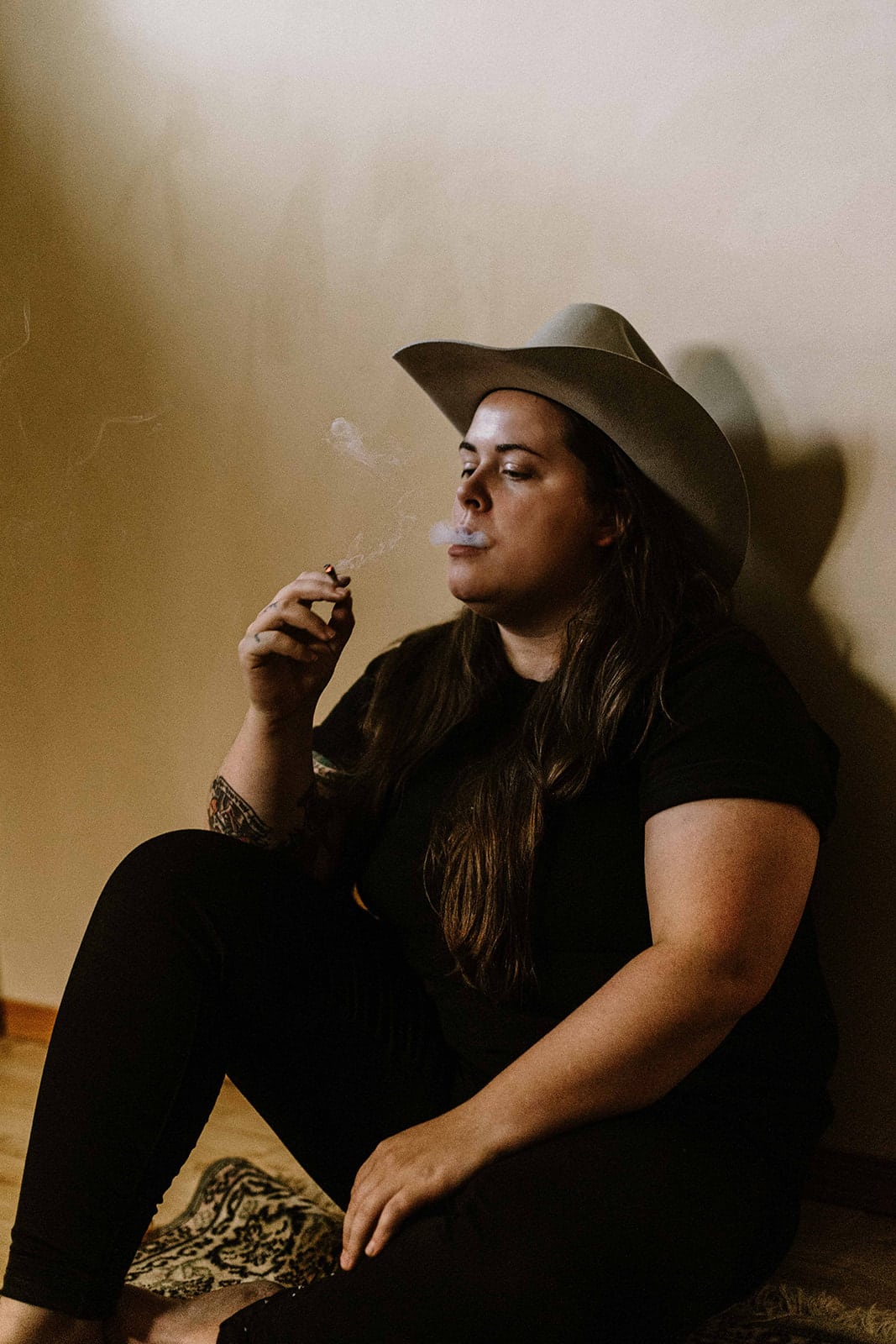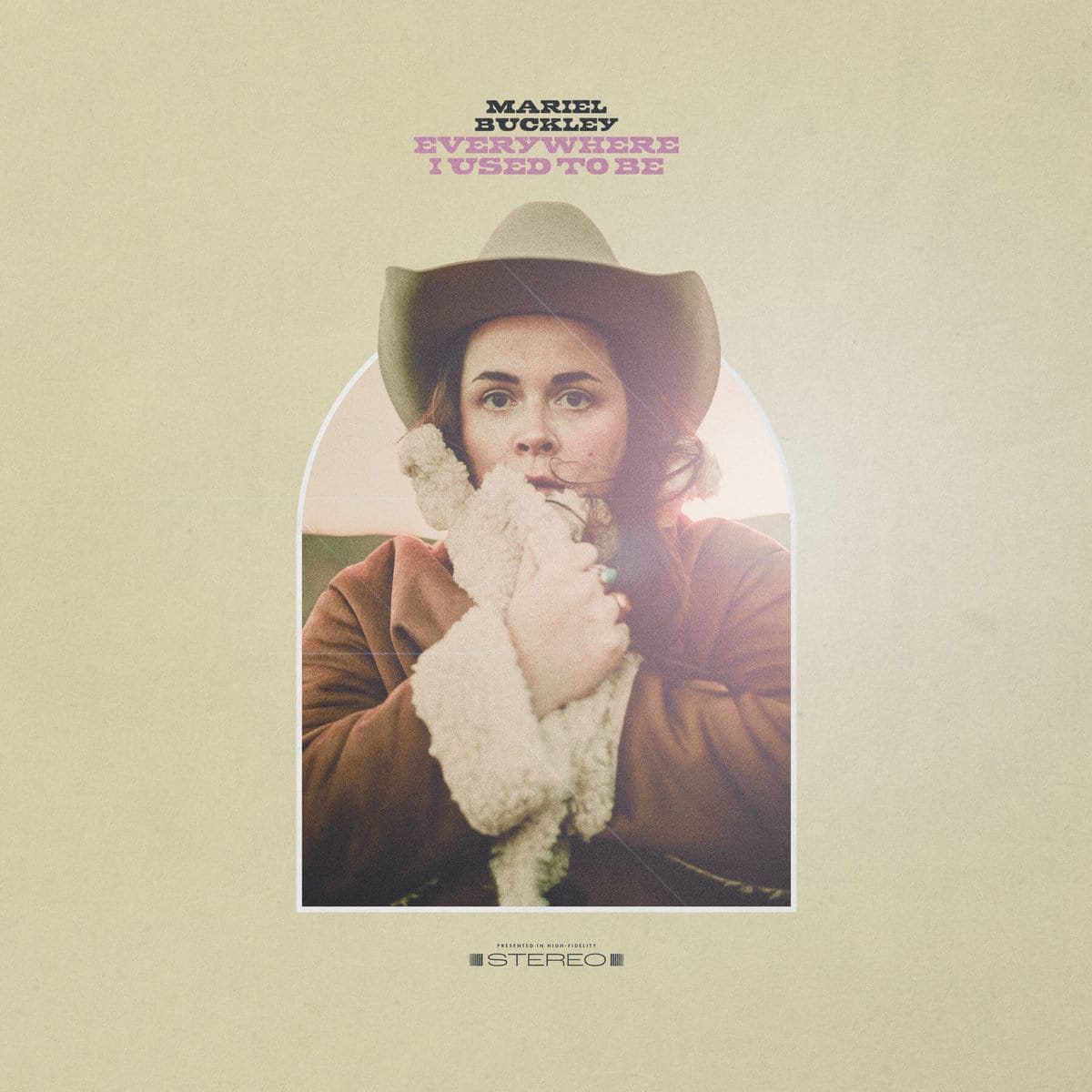Think small towns, and John Cougar’s anthem by the same name inevitably comes to mind. Or perhaps Joni Mitchell’s “Morning Morgantown” or The Michael Stanley Band’s “My Town” if you’re into deep cuts. But for every song that celebrates one-horse burgs, there is someone who fucking loathes them, including Canadian singer-songwriter Mariel Buckley, whose new album Everywhere I Used To Be is not so much a Dear John to her hometown as much as it is an indictment.
In the album’s accompanying mission statement, she writes, “I have a lot of opinions that don’t jive with Norman Rockwell’s America.” Indeed, Buckley’s life has little in common with the wholesomeness and innocence synonymous with the painter’s Life magazine covers. “Beyond the queer thing,” she says, “I already don’t fit the standard bill for acceptable female entertainers as it is.” She’s also stared down addiction, abusive relationships, and mental illness, realities that run contrary to the accepted mainstream narrative. If Buckley remained tight-lipped about her struggles on her debut, Driving In The Dark, she bares her scars and teeth on its follow-up. Everywhere is what happens when an artist’s quest for authenticity and matured songwriting ambitions coalesce. Buckley presents the small town as ruins: Bars are last stands or last resorts; hometown heroes are diminished; roads doom denizens to circles. What was once homespun is now suffocating.

In “Going Nowhere”, there’s a lot of talk but little ambition to dream past the city limits sign. On the title track, a break-up offers an opportunity for change, but instead, she sings of retreat to familiar haunts. “Love Ain’t Enough” refuses the safe, unexamined language of cliches, giving lie to the triteness behind Joe Cocker and Jennifer Warne’s “Up Where We Belong”. “I’m sorry to say,” Buckley confesses, love “ain’t gonna fix this crooked old world/ain’t gonna lift us up.” Elsewhere, provincial values cloud what would otherwise be a quaint love song: In “Driving Around,” love is resigned to secrecy because it’s seen as taboo.
Yet it’s on the barbed “Hate This Town” that she does her most damage. Artificiality reigns: Strip malls, neon crosses, and “fucking Christians” who “think they’re doing everyone a favor” flourish, and the gossip mill and judgment are unrelenting, if not ironic:
I don’t wanna hate this town
I’m just trying to keep my head down
What’s the point when everyone knows your business?
“Goddamn it, I hate myself,” she laments, “Goddamn it, I hate this town.”
Producer Marcus Paquin (Arcade Fire, The Weather Station, The National) peppers the album with occasional ethereal sweeps that hint at escape or transcendence– the aching “Whatever Helps You” is beautiful heartbreak; lead single “Shooting at the Moon” is an underdog’s rally cry– but it’s Buckley’s grim sincerity that makes obvious sense to listeners who also find no refuge in their town square.
